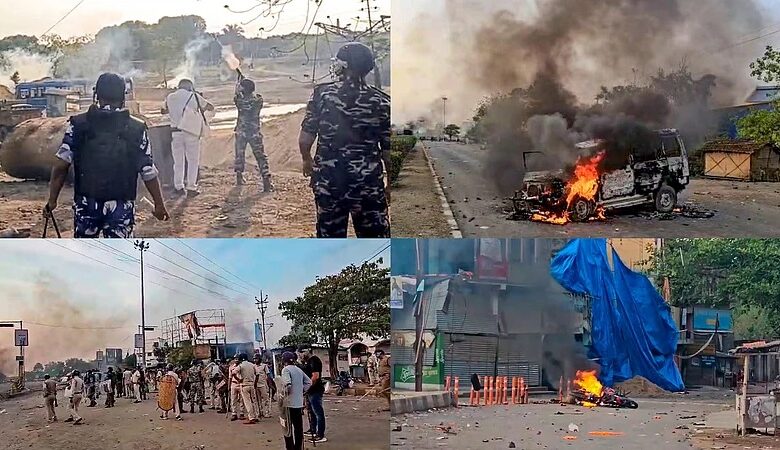Bangladeshi miscreants involved in Bengal Waqf violence, Centre told: Sources
News Mania Desk / Piyal Chatterjee / 15th April 2025

A preliminary investigation into the significant violence that shook West Bengal concerning the Waqf law has indicated the participation of Bangladeshi criminals, the Union Home Ministry was told, as per sources.
The investigation also revealed that the Mamata Banerjee-led administration did not oversee the intruders as turmoil engulfed Murshidabad district and South 24 Parganas during demonstrations regarding the Waqf law, resulting in three fatalities and multiple injuries. West Bengal, home to more than 80,480 Waqf properties—second only to Uttar Pradesh’s 2.2 lakh—has experienced extensive protests following the enactment of the Waqf law earlier this month.
The legislation, which broadens the government’s authority over Waqf properties, is perceived by some members of the Muslim community as an attempt to “take” their land. The Centre has dismissed those allegations.
Numerous shops and vehicles were set ablaze, and residents’ homes were pillaged after demonstrations against the Waqf law escalated violently in Suti and Samserganj within the Murshidabad district. Many residents have also escaped these regions since turmoil engulfed the Muslim-majority area on April 11.
According to the 2011 Census, Murshidabad, neighboring Bangladesh, has a 66% Muslim demographic.
The conflict spread to Bhangar in the South 24 Parganas district on Monday as a demonstration organized by the India Secular Front (ISF) opposing the Waqf law escalated into violence. Demonstrators confronted law enforcement and ignited vehicles after being prevented from going to Kolkata.
In the midst of the unrest, Bengal Governor CV Ananda Bose requested a comprehensive report from the Trinamool government. The Calcutta High Court has intervened as well, directing the deployment of central forces in sensitive regions. In the meantime, Chief Minister Mamata Banerjee urged for tranquility and asserted that the disputed law would not be enforced in the state.






